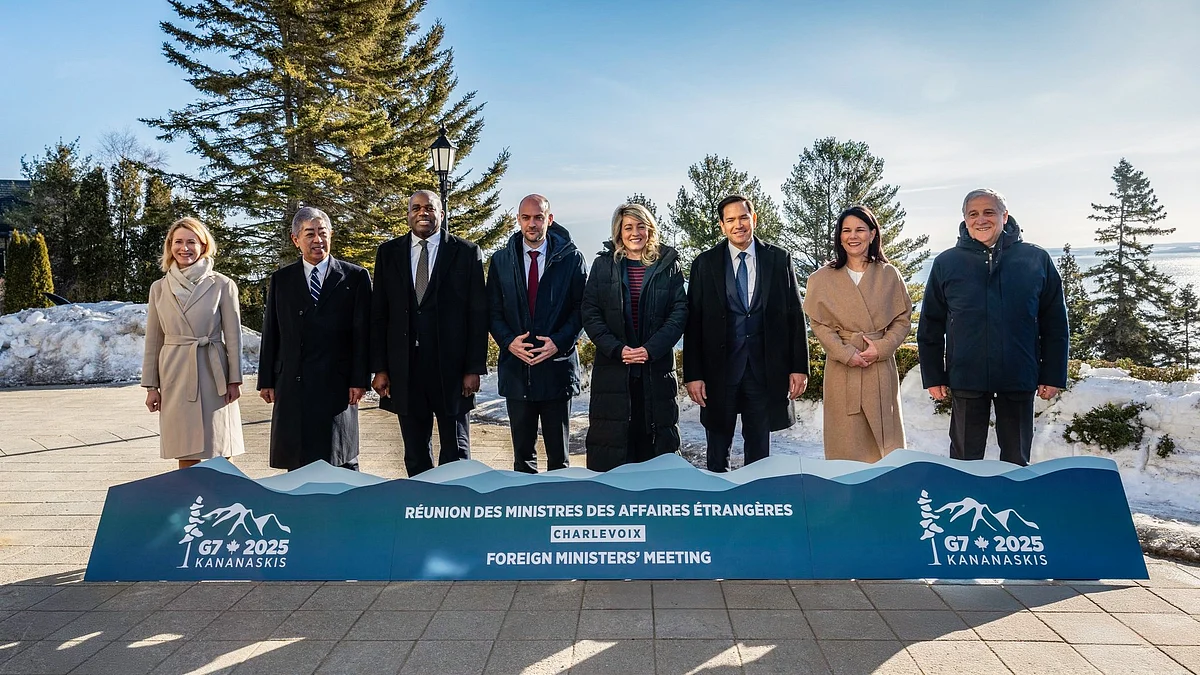World
Ukraine: G7 ministers reach agreement, warn Russia of potential sanctions
Final communiqué reaffirms G7’s 'unwavering support for Ukraine in defending its territorial integrity, sovereignty, and independence'

Foreign ministers from the G7 nations finalised a joint statement on Friday, demonstrating unity in support of Ukraine’s sovereignty and warning Russia to follow Kyiv’s lead in accepting a ceasefire — or face additional sanctions.
The discussions took place against a backdrop of mounting tensions between US allies and President Donald Trump, whose policy shifts on trade, security, and the Ukraine conflict have unsettled Western partners.
Leading up to the meeting, officials worried that divisions within the group might prevent them from crafting a unified statement on pressing global issues. They feared that a failure to reach consensus could benefit Russia and China.
Despite these concerns, Canadian foreign minister Mélanie Joly expressed optimism shortly before the ministers approved the final document. "I believe we’re on track to release a strong statement. I’m confident we can achieve that," Joly told reporters. "Our discussions have spanned key topics, including Ukraine and the Middle East, with our primary objective being to reinforce G7 unity."
The foreign ministers from Britain, Canada, France, Germany, Italy, Japan, and the United States — along with representatives from the European Union — gathered in the remote tourist town of La Malbaie in Canada's Quebec province for two days of deliberations. While such meetings have traditionally been characterised by broad agreement, this year’s negotiations proved more challenging.
In the lead-up to the summit, diplomats struggled to find common ground on language concerning Ukraine, the Middle East, and China. Washington, in particular, pushed for stronger wording on China while resisting a separate declaration on Russia’s "shadow fleet" — a covert shipping network used to bypass sanctions.
Published: undefined
The final communiqué reaffirmed the G7’s "unwavering support for Ukraine in defending its territorial integrity, sovereignty, and independence".
A previous reference to "security guarantees" ensuring a ceasefire was softened to "assurances". However, the statement maintained a firm stance, urging Moscow to match Kyiv’s commitment to a truce or face additional sanctions, including oil price caps.
"G7 nations call on Russia to reciprocate by agreeing to a ceasefire under equal conditions and fully implementing it," the statement read.
The ministers emphasised that any ceasefire must be respected and stressed the necessity of "robust and credible security measures" to ensure Ukraine can defend itself against future acts of aggression.
Significantly, Putin has made it clear that his acceptance of the ceasefire proposal will be conditional on a reduction of Ukraine's military might.
On China, the G7 leaders opposed "any unilateral attempts to alter the status quo in the Taiwan Strait through force or coercion", language likely to be welcomed by Taipei.
Disagreements also arose over wording related to the Israeli-Palestinian conflict, particularly concerning a two-state solution — an issue Washington resisted.
While earlier drafts highlighted the importance of a two-state resolution, the final version omitted direct mention of it. Instead, the statement underscored the need for a political framework addressing Palestinian aspirations while fostering "peace, stability, and prosperity" across the Middle East.
"They emphasised the necessity of a political pathway for the Palestinian people, achieved through a negotiated resolution to the Israeli-Palestinian conflict that acknowledges the legitimate needs and aspirations of both sides," the statement read.
With agency inputs
Published: undefined
Follow us on: Facebook, Twitter, Google News, Instagram
Join our official telegram channel (@nationalherald) and stay updated with the latest headlines
Published: undefined